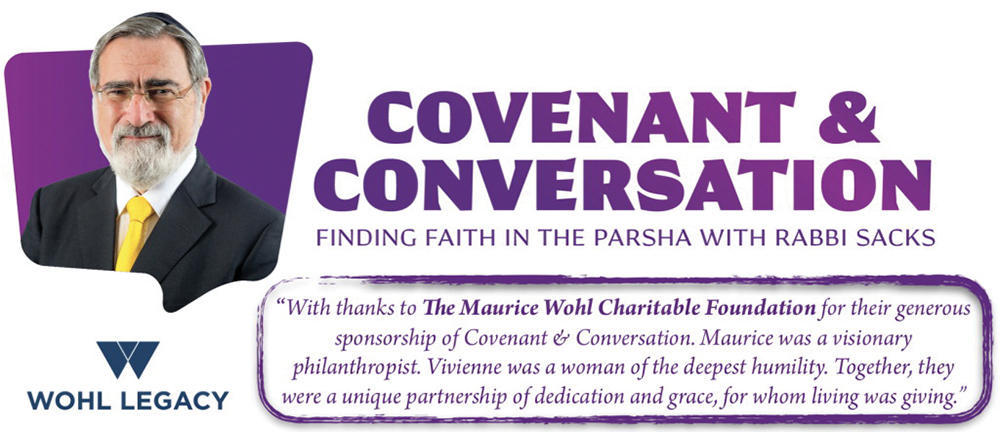
“What do porcupines do in winter?” asked Schopenhauer. “How can they stay warm?” If they come too close to one another, they will injure each other. If they stay too far apart, they will freeze. Life, for porcupines, is a delicate balance between closeness and distance. It is hard to get it right, and dangerous to get it wrong. And so it is for us.
That is the force of the word that gives our parsha its name: Vayigash. “And he came close.”
Then Judah came close to him and said: “Pardon your servant, my lord, let me speak a word to my lord. Do not be angry with your servant, though you are equal to Pharaoh himself.” – Gen. 44:18
For perhaps the first time in his life, Judah came close to his brother Joseph. The irony is, of course, that he did not know it was Joseph. But that one act of coming close melted all of Joseph’s reserve, all of his defenses, and as if unable to stop himself, he finally disclosed his identity: Then Joseph said to his brothers, “I am Joseph! Is my father still alive?” – Gen. 45:3
How can we be sure that Vayigash is the key word? Because it contrasts with another verse, many chapters and many years earlier.
But they saw him in the distance, and before he reached them, they plotted to kill him. – Gen. 37:18
Right at the beginning of the story, when Joseph was sent by his father to see how the brothers were doing, tending the sheep, they saw him from far away, from a distance. Imagine the scene. They cannot see his face. All they can see is the richly ornamented cloak, the “coat of many colors,” that so upsets them. This coat acts as a constant reminder that it is he, not they, whom their father loves most.
From far away, we don’t see people as human beings, and when we stop seeing people as human beings, and they become instead symbols, objects of envy or hate, people can do bad things to one another. The whole tragedy of Joseph and his brothers was distance. They were too far apart in every way.
Which is why it was only when Judah came close to Joseph – vayigash – that the coldness between them thawed, and they became brothers, not strangers to one another.
Too much distance and we freeze. But if we get too close we can injure one another. That was the story of Jacob and Esau. Think about it. Jacob bought Esau’s birthright. He stole his blessing. He wore Esau’s clothes. He borrowed his identity. Even when they were born, Jacob was clutching Esau’s heel.
It was only when there was a distance between them – the 22 years in which Jacob was away from home, with Laban – that the relationship healed, so that when they met again, despite Jacob’s fears, Esau embraced and kissed him and treated him like a brother and a friend.
Too close and we hurt one another. Too distant and we freeze.
How then do we make and sustain relationships, if the balance is so fine and it is so easy to get it wrong? The Torah’s answer – already there in the first chapter of the Torah – is: first separate, then join. The verb lehavdil, “to separate,” appears five times in the first chapter of Bereishit. God separates light from darkness, the upper and lower waters, sea and dry land. Separation is at the heart of Jewish law – between holy and profane, pure and impure, permitted and forbidden.
In Judaism kadosh, holy, means separation. To sanctify is to separate. Why? Because when we separate, we create order. We defeat chaos. We give everything and everyone their space. I am I and not you. You are you and not I. Once we respect our difference and distance, then we can join without doing damage to one another.
First separate, then connect. That seems to be the Jewish way.
Heart-wrenching separations also appear at both ends of the Abraham story. At the beginning of his mission, Abraham was told to separate himself from his father, to leave his home and journey to a new land, far away. Towards the end he was told to separate himself, in different ways, from each of his two sons. These painful episodes represent the agonizing birthpangs of a new way of thinking about humanity. But ultimately, we see his sons standing together again, and he is reconciled with both.
That is how God created the universe, and that is how we create real personal relationships. By separating and leaving space for the other. Parents should not seek to control children. Spouses should not seek to control one another. It is the carefully calibrated distance between us in which a relationship allows each party to grow into full individuals. And then to be seen, when we stand back and really look at them – but not too far back.
The most beautiful symbol of the problem and its resolution is the ceremony of havdalah at the end of Shabbat and especially the havdalah candle. The wicks are separate but the flame they make is joined. So it is between husband and wife. So it is between parent and child. And so it is, or should be, between siblings. Distance damaged the relationship between Judah and Joseph. Vayigash – Judah’s act of drawing close to his brother – restored it.












